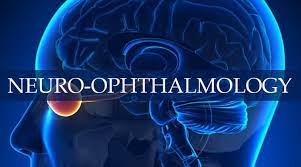The Role of a Neuro Ophthalmologist in Eye Health
Neuro ophthalmology is a specialized field at the intersection of neurology and ophthalmology, dedicated to unraveling the complex relationship between the eyes and the brain. In this article, we delve into the critical role of neuro-ophthalmologists and how they contribute to diagnosing and treating various eye disorders. Additionally, we’ll explore how recent SEO updates influence the way we deliver this valuable information.
What Is a Neuro Ophthalmologist?
Neuro ophthalmologists are highly skilled medical professionals who possess expertise in both neurology and ophthalmology. They are uniquely trained to diagnose and manage eye conditions that are closely linked to neurological disorders. These specialists understand the intricate connection between the eyes and the brain, making them pivotal in addressing complex visual problems.
When to See a Neuro Ophthalmologist
Recognizing the right time to consult a neuro ophthalmologist is crucial for early diagnosis and effective treatment. Several symptoms and situations warrant a visit to these specialists:
Visual Disturbances:
If you experience sudden or persistent visual disturbances such as blurriness, flashes of light, or blind spots, it’s essential to seek expert evaluation.
Double Vision:
Double vision, also known as diplopia, can be a sign of underlying neurological issues. Neuroophthalmologists can pinpoint the root cause and provide appropriate treatment.
The Neuro Ophthalmologist’s Diagnostic Process
When you consult a neuroophthalmologist, you can expect a comprehensive evaluation process. This involves a detailed review of your medical history, a thorough eye examination, and specialized tests to assess your visual and neurological functions.

neuro ophthalmologist
Key Symptoms to Watch For
A neuroophthalmologist’s expertise lies in identifying and interpreting key symptoms that may signal underlying neurological issues. These symptoms include:
Visual Field Loss:
Patients may experience blind spots or a narrowing of their visual field, often associated with conditions like optic neuropathy or pituitary tumors.
Ptosis (Drooping Eyelids):
Ptosis can be a manifestation of myasthenia gravis or other neuromuscular disorders.
Conditions Diagnosed and Treated
Neuro ophthalmologists play a pivotal role in diagnosing and managing a wide range of eye and neurological conditions. Some of the conditions they commonly address include:
Optic Neuritis:
Inflammation of the optic nerve can result from autoimmune diseases or infections.
Myasthenia Gravis:
A neuromuscular disorder leads to muscle weakness, often affecting the eye muscles and causing ptosis or double vision.
Treatment Approaches
Neuroophthalmologists employ a variety of treatment approaches tailored to each patient’s specific condition. These approaches may include:
Medications:
Prescribing medications to manage underlying neurological conditions, reduce inflammation, or alleviate symptoms.
Surgical Interventions:
When necessary, surgical procedures may be recommended to address structural issues affecting vision.
Collaboration with Other Specialists
Neuroophthalmologists often work in collaboration with a team of medical professionals to ensure comprehensive care for their patients. This collaborative approach may involve neurologists, neurosurgeons, endocrinologists, and other specialists, depending on the patient’s specific condition.
Neuro-Ophthalmology in Research and Innovation
Advancements in the field of neuro-ophthalmology are ongoing, with research playing a crucial role in improving diagnostic techniques and treatment options. Recent developments include the integration of artificial intelligence and natural language processing in data analysis.
Choosing the Right Neuro Ophthalmologist
Selecting a qualified and experienced neuro-ophthalmologist is essential for receiving optimal care. Consider the following tips when choosing the right specialist:
Credentials:
Verify the neuroophthalmologist’s qualifications, certifications, and affiliations with reputable medical institutions.
Patient Reviews:
Read patient reviews and testimonials to gauge the quality of care provided.
FAQs about neuro-ophthalmologist
Q: What is a neuro-ophthalmologist, and what do they do?
A: A neuro-ophthalmologist is a medical specialist who focuses on diagnosing and treating eye conditions related to neurological issues. They assess visual problems caused by brain diseases, optic nerve disorders, and more.
Q: When should I consider seeing a neuro-ophthalmologist?
A: You should consider seeing a neuro-ophthalmologist if you experience visual disturbances, double vision, or pupil abnormalities, as these symptoms may indicate underlying neurological issues.
Q: How does a neuro-ophthalmologist diagnose eye conditions?
A: Neuro ophthalmologists conduct a comprehensive evaluation, including a review of medical history and specialized tests to assess visual and neurological functions. They also utilize advanced tools and technology.
Q: What are some common symptoms that neuroophthalmologists address?
A: Neuro ophthalmologists commonly address symptoms like visual field loss, ptosis (drooping eyelids), headaches with visual changes, and unequal pupils (anisocoria) that may be linked to neurological conditions.
Q: What are some conditions that neuroophthalmologists diagnose and treat?
A: They diagnose and treat conditions such as optic neuritis, myasthenia gravis, idiopathic intracranial hypertension, pituitary tumors, and stroke-related vision impairments.
Q: What treatment approaches do neuroophthalmologists use?
A: Neuro ophthalmologists employ treatments like medications, surgical interventions, vision rehabilitation, and lifestyle recommendations, depending on the patient’s diagnosis and needs.
Q: Do neuroophthalmologists work with other specialists?
A: Yes, neuro-ophthalmologists often collaborate with neurologists, neurosurgeons, endocrinologists, and other specialists to provide comprehensive care for their patients.
Q: How does research contribute to neuro-ophthalmology?
A: Research in neuro ophthalmology leads to advancements in diagnostic techniques and treatments. AI and natural language processing assist in data analysis, improving patient care.
Q: How can I choose the right neuro ophthalmologist for my needs?
A: Consider their credentials, patient reviews, referrals, and effective communication when selecting a neuro ophthalmologist. Trust in their qualifications and expertise.
Q: What is the significance of staying informed about neuro ophthalmology?
A: Staying informed about neuro ophthalmology allows you to take proactive steps for your eye and neurological health. It helps you make informed decisions and benefit from the latest developments in the field.
Conclusion:
Neuro ophthalmologists play a vital role in diagnosing and managing complex eye conditions with underlying neurological roots. Their expertise, collaborative approach, and embrace of technological advancements ensure that patients receive the highest quality care available.




